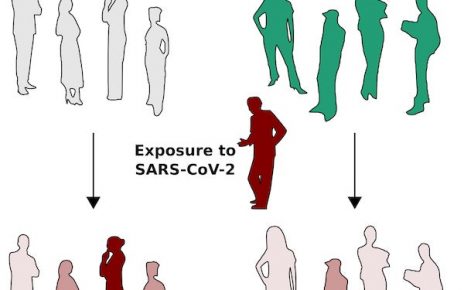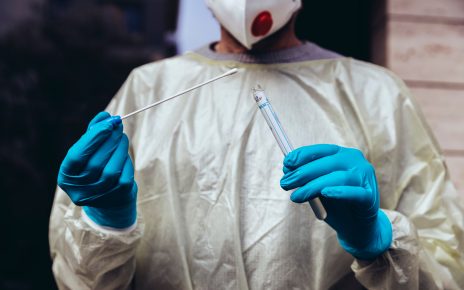Recently, there was a fake local “Asian restaurant” listing on Google Maps and Instagram involving students from my university which included menu items such as “mouse tail salad” and “marinated ostrich foreheads.” The restaurant’s name, menu and reviews—even if they were intended as a joke—were all despicable examples of the prevalence and perpetuation of anti-Asian racism that is very much present today and brought to the forefront amid COVID-19.
Such behavior creates an unpleasant and very uncomfortable work environment that is neither welcoming nor inclusive for Asian researchers like me. To make matters even worse, it turned out that the Instagram account was linked to students who are predominantly from my college. Knowing that there are students in my very own college who promulgate such offensive views is unsettling and has become a realization of my own anxiety that surfaced in the early days of the pandemic.
Because the virus originated in Wuhan, I have had to struggle with the growing bigotry towards Asians in addition to avoiding the virus itself. Early on, there would be report after report about how Asians were facing racism-fueled verbal and physical attacks and the disturbingly common usage of terms lime “Chinese virus” and “kung flu.” Therefore, I was told by family and friends to be alert and careful when I was literally anywhere but my home. At the beginning of the pandemic, mask wearing was not required, but it was something I strongly considered doing in lab and around campus given I had some dust masks.
I didn’t wear them, though, as I was told that coworkers and colleagues might suspect I was infected with coronavirus and avoid or harass me. I was told not to stay late and avoid sparsely populated areas on campus as it could be physically dangerous. I ended up going home early most days, shortening the time for experiments and work. These were all things I accepted because of the xenophobia towards Asians worldwide, but the heightened awareness became burdensome and made research (as well as non-research and leisure activities) all the more difficult. At the time, I thought that speaking up about these concerns could make me a target for behind-the-scenes jokes among colleagues and result in alienation or loss of collaboration.
In the end, my anxiety was not unfounded. As I will soon be physically returning to a building regularly frequented by many engineering students, it is even more concerning now than it was several months ago, knowing potential colleagues I work with or see on a regular basis might hold racist views. Questions and thoughts such as “Do others view me and other Asians as unsanitary and ill?” or “Will some students in my building avoid or make racist remarks about me?” or “How can I do research properly when I’m worried?” or “I should try to finish my experiments as soon as possible to minimize my time on campus” will continue to pervade the back of my mind.
These concerns are further magnified because of the microaggressions I faced before the outbreak, like being asked if I was related to someone who shared my last name, or told that engineering should be easy for Asians because they excel in math. Likewise, my Asian peers and I are too commonly presumed to be pursuing careers in science or engineering because we were forced to by our families or assumed and expected to be good at it. Another question I have regularly received is about where I am “originally from,” even though I am from the US. Lastly, Asians are often (inaccurately) viewed as the model minority and thought to not suffer from discrimination, which is clearly false as seen from recent events.
I am not alone in this anxiety. A recent Pew Research Center study found that Asian Americans have the highest reported negative experiences (such as noticing people acting uncomfortable around them, receiving slurs/jokes, and feeling fear of threats or physical attacks) compared to those of other surveyed ethnicities since the coronavirus outbreak. About four in 10 Americans reported that it is more common now for people to have racist views towards Asians than before the outbreak. Although this survey was of American adults not specific to any institution(s), these issues most definitely hold true at institutions worldwide where Asian researchers spend their workdays.
Thankfully, my institution and college have been proactive in condemning racist behavior. They have contacted Google and Instagram to remove the fake “restaurant,” have expressed their concern and willingness to take action against racism, and are holding journal club discussions and diversity symposiums about race. I deeply appreciate these efforts for productive dialogue and the sincere care taken to create a more inclusive and safe space. More broadly, in addition to mandatory online bias training, institutions should develop spaces like a life issues groups (my department has an ongoing one), journal clubs, or symposiums for discussions to educate the community about prejudice and race. Additionally, faculty—from PIs to deans—should welcome discussions about race issues and be more transparent in addressing them. I also think that social media campaigns by institutions also have the potential to raise awareness and educate others about racism.
We have a lot of work ahead of us, but inclusion and positive change within our very own institutions and in science is achievable if we unite against racism. Greater inclusion will lead to the more open sharing of ideas where science can flourish.
I would like to thank my friend Annie Zhou, and my advisor, Dr. Zhijie Wang, for their support in the writing of this piece.




